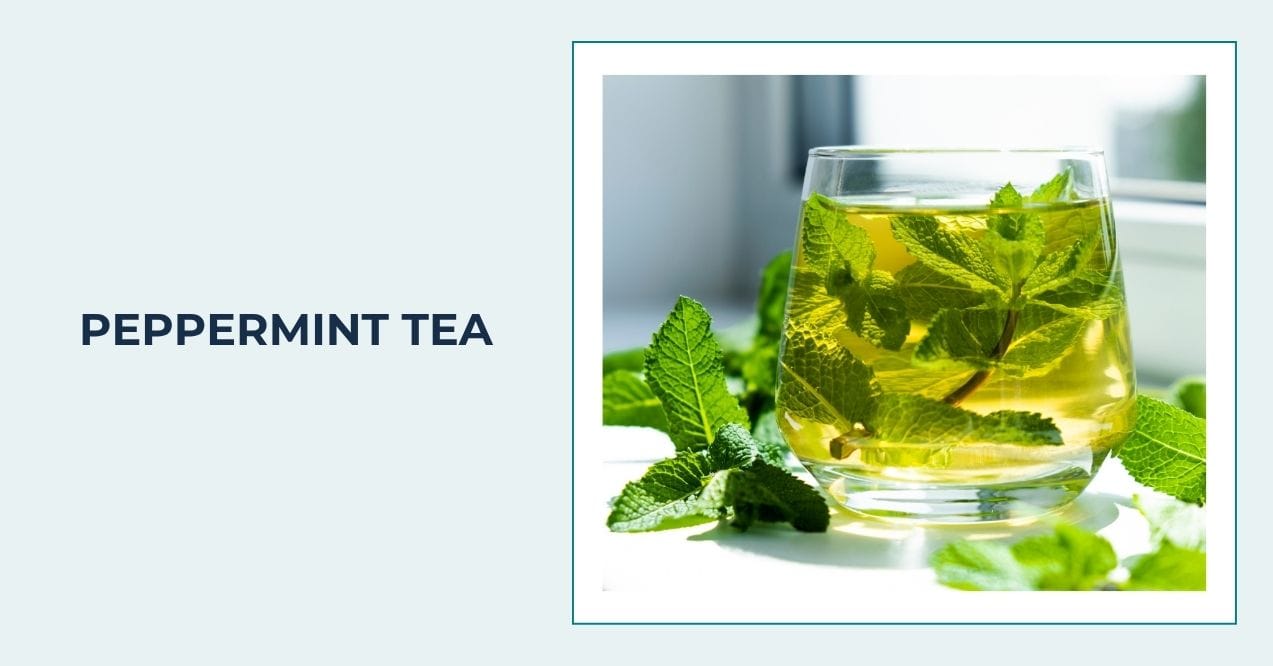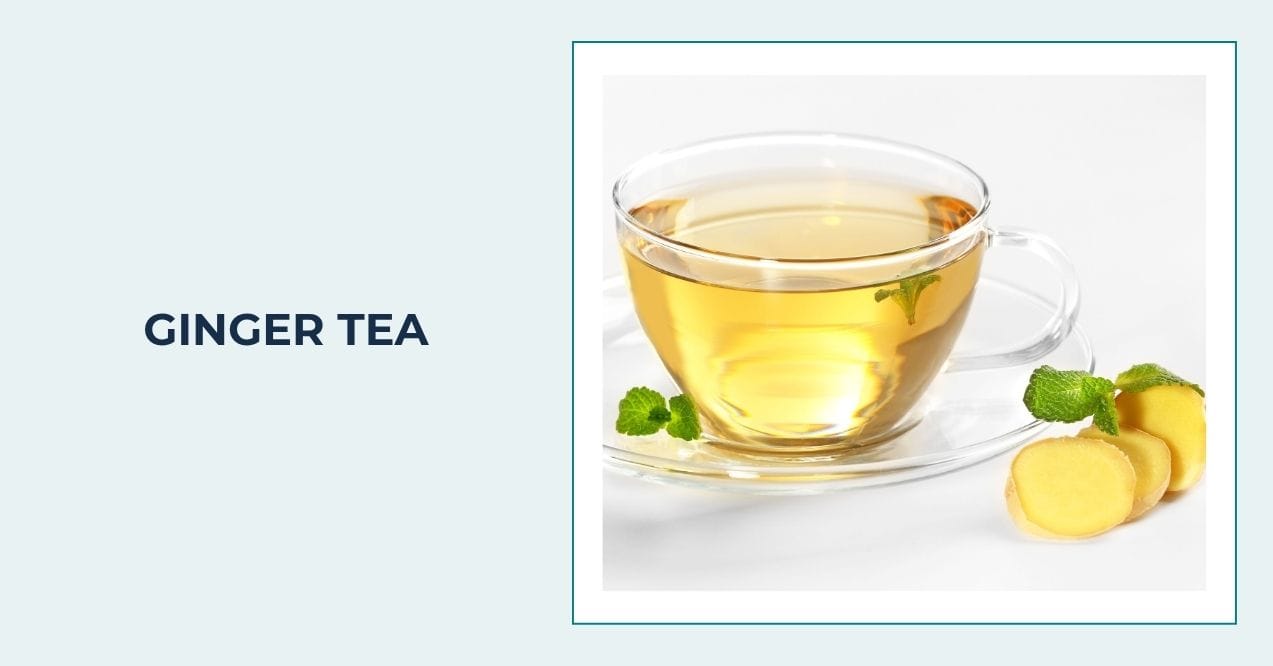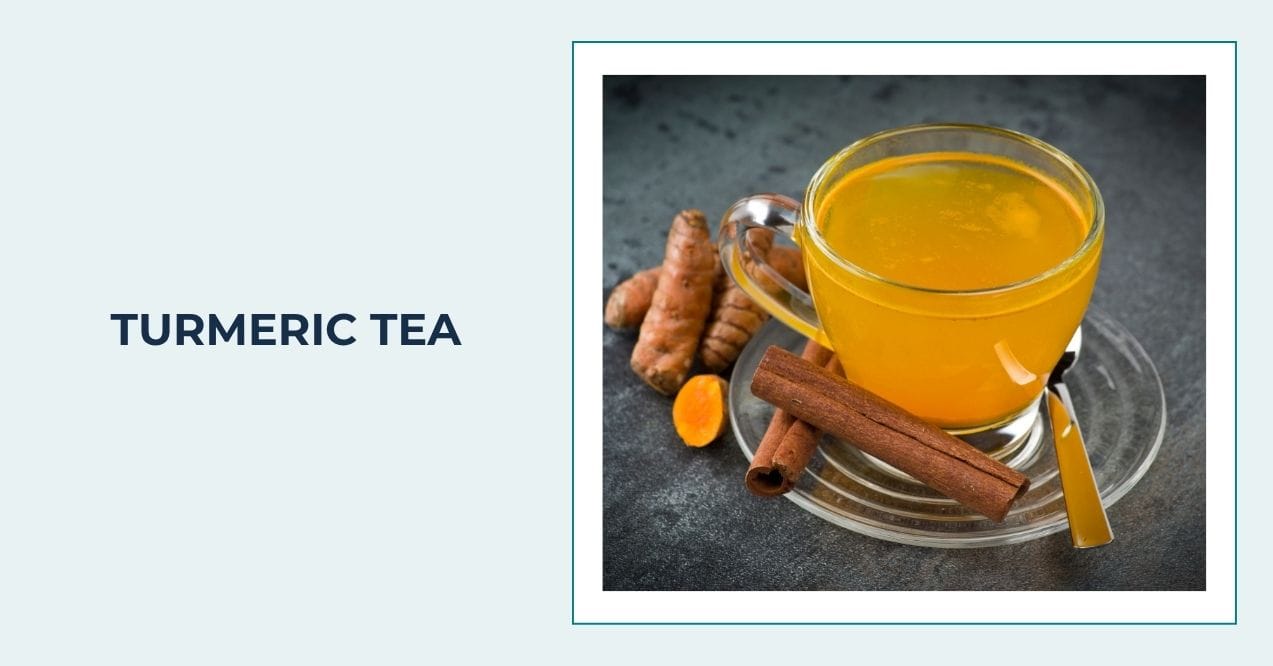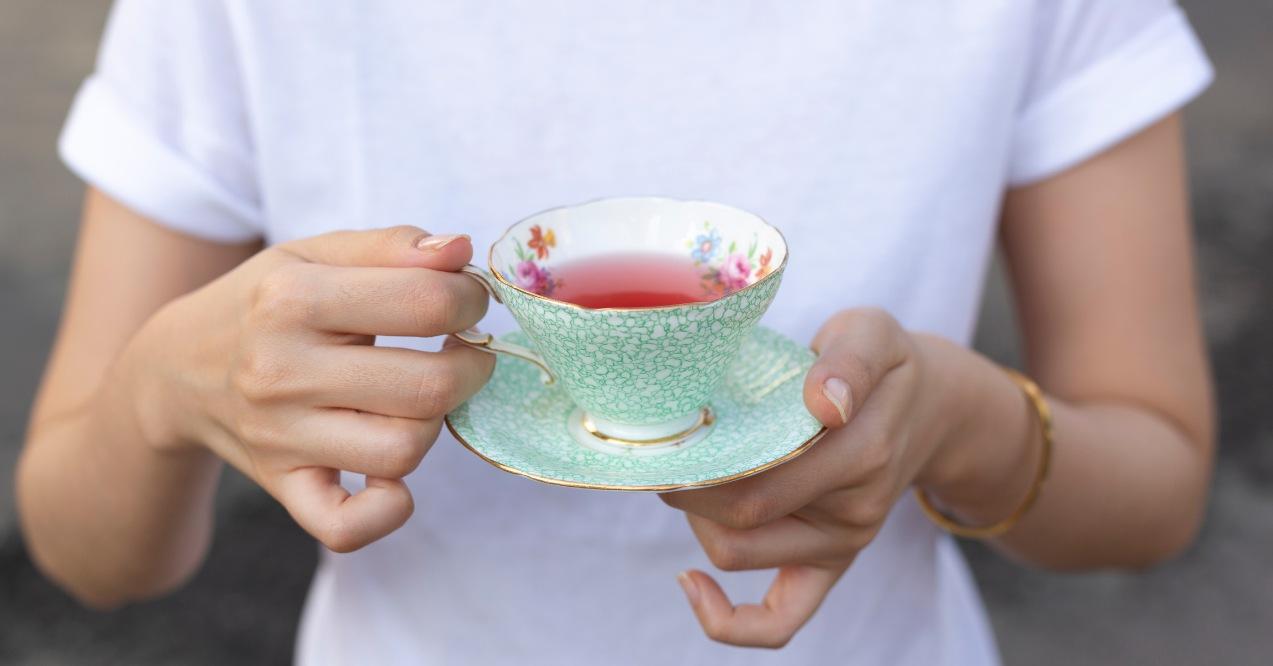5 Best Teas for Inflammation
Medically reviewed by our experts


Discovering the best teas for inflammation can transform your approach to managing this common, yet often misunderstood, condition. Inflammation is the body’s natural defense mechanism designed to protect against injury and infection.
However, when inflammation becomes chronic, it can potentially lead to various health problems. Therefore, this blog post aims to shed light on the different forms of inflammation, why it becomes problematic, and how herbal teas can aid in addressing it.
Whether you’re dealing with joint pain, digestive discomfort, or other inflammatory conditions, incorporating these teas into your daily routine could provide a natural and comforting solution. Not only the best supplements for immune system support can help you boost your health, but also these soothing teas can offer additional relief. Let’s dive into the world of teas and discover how these brews can support your journey towards better health.
Forms of Inflammation and Why It’s Problematic
Inflammation, the body’s natural defense mechanism, serves as a crucial response to injury, infection, or harmful stimuli. However, when inflammation becomes chronic, it can lead to a myriad of health issues, underscoring the importance of understanding its forms and implications. Inflammation is generally categorized into two primary forms: acute and chronic.
Acute Inflammation
Acute inflammation serves as the body’s immediate and temporary response to an injury or infection. It is marked by redness, warmth, swelling, and sometimes pain in the affected area. This response is crucial for healing, as it helps isolate the affected region and prevent the spread of infection.
Chronic Inflammation
Chronic inflammation is a prolonged inflammatory response that may last for months or even years. Differing from acute inflammation, chronic inflammation can silently damage tissues and organs without noticeable symptoms, potentially contributing to the development of various diseases, such as heart disease, diabetes, and cancer. This type of inflammation represents a significant health risk, highlighting the importance of identifying and managing chronic inflammation for long-term health.
How Do Herbal Teas Reduce Inflammation?
Herbal teas are nature’s subtle yet powerful remedy against inflammation, due to their rich content of antioxidants, polyphenols, and various bioactive compounds. These natural ingredients can aid in quelling inflammation by targeting and inhibiting the body’s inflammatory pathways.
Additionally, they work to decrease the production of pro-inflammatory substances, effectively dampening the inflammatory response. By incorporating specific herbal teas into your diet, you can harness these anti-inflammatory properties to help soothe and protect your body, promoting a state of health and well-being that combats the onset and progression of inflammatory-related conditions.
Best Teas for Inflammation
In the quest to find natural solutions for inflammation, tea emerges as a gentle yet potent ally. Among the plethora of options, certain brews stand out for their remarkable anti-inflammatory properties. These best anti-inflammatory teas not only soothe and heal the body but also offer delightful sensory experiences.
1. Green Tea

When considering the best teas for inflammation, green tea stands out as a powerhouse for health, celebrated for its potent anti-inflammatory properties. Abundant in antioxidants like epigallocatechin gallate (EGCG), it actively hinders inflammatory processes, fostering a reduction in bodily inflammation. Consistent intake not only bolsters defenses against chronic ailments but also promotes holistic well-being.
2. Peppermint Tea

When seeking relief from stomach inflammation, peppermint tea is an excellent choice. Infused with menthol, this tea may act as a gentle yet powerful analgesic and anti-inflammatory remedy, soothing gastric discomfort and reducing inflammation in the digestive system.
3. Ginger Tea

Ginger tea, renowned for its invigorating taste and healing properties, emerges as a natural remedy for pain relief. The presence of gingerol, its primary bioactive compound, underscores its efficacy with robust anti-inflammatory and antioxidant properties. These attributes make ginger tea a promising remedy for alleviating inflammation, particularly beneficial for managing conditions related to joint health and muscle discomfort.
4. Turmeric Tea

Turmeric tea, crafted from the radiant golden spice, holds an esteemed position among the best anti-inflammatory teas. Renowned for its healing prowess, curcumin, the star component in turmeric, garners attention for its well-documented anti-inflammatory and antioxidant capabilities. This brew emerges as a potent ally in the battle against chronic inflammation and pain, offering substantial relief to those in need. Additionally, understanding what is white turmeric can further enhance the appreciation of turmeric’s diverse benefits, as white turmeric also possesses medicinal properties and is used in various traditional remedies.
5. Chamomile Tea

Chamomile tea is a time-honored remedy known for its calming and anti-inflammatory effects. It is particularly effective as a tea that helps with inflammation of the stomach and as a pain-relieving tea for conditions like menstrual cramps.
Incorporating these teas into your routine can offer a natural and enjoyable way to combat inflammation, with each sip bringing you closer to a state of balance and health. Whether you’re looking for general anti-inflammatory benefits or specific relief from stomach pain or other discomforts, these teas provide a delightful and beneficial solution.
How Much Tea Should I Drink to Reduce Inflammation?
Along with learning about the best teas for inflammation, moderation and consistency are also important. Typically, drinking 2-3 cups of your chosen anti-inflammatory tea daily can provide noticeable benefits. This quantity is sufficient to introduce a steady stream of beneficial compounds into your system without overwhelming it.
Starting with one cup a day and gradually increasing to three allows your body to adjust and maximize the absorption of the teas’ bioactive components. Consistently consuming these teas over weeks or even months is crucial for observing significant reductions in inflammation.
What Else Helps Fighting Inflammation?
Combating inflammation goes beyond just drinking tea; it encompasses a holistic approach to lifestyle choices. Scientific research supports several strategies that, when combined with the consumption of anti-inflammatory teas, can significantly enhance your body’s ability to fight inflammation:
- Balanced Diet – Incorporate foods rich in omega-3 fatty acids, such as salmon and flaxseeds, and a variety of fruits and vegetables, especially berries, oranges, and leafy greens, known for their anti-inflammatory properties.
- Regular Exercise – Engaging in moderate exercise for at least 150 minutes per week has been shown to reduce inflammation markers in the body.
- Adequate Sleep – Getting 7-9 hours of quality sleep is vital for reducing inflammation. Poor sleep hinders the body’s repair processes, increasing inflammation and potentially causing issues like nausea. One common question is, “Can lack of sleep cause nausea?” The answer is yes, sleep deprivation can lead to digestive discomfort, further emphasizing the need for proper rest in maintaining overall health.
- Stress Management – Practices like meditation, yoga, and deep breathing can lower stress levels, thereby reducing inflammation.
- Anti-Inflammatory Foods and Herbs – Turmeric, ginger, and garlic are just a few examples of foods and herbs celebrated for their anti-inflammatory effects.
Ensuring a diet rich in anti-inflammatory foods, staying active, getting enough rest, and managing stress levels remain foundational. By integrating these approaches thoughtfully, you can create a comprehensive strategy for managing inflammation and promoting overall well-being.
Final Thoughts
Incorporating the best teas for inflammation into your daily routine can be a simple yet effective way to manage chronic inflammation and improve overall health. Green tea, peppermint tea, ginger tea, turmeric tea, and chamomile tea each offer unique anti-inflammatory properties that can help reduce pain, soothe digestive issues, and support joint health.
Drinking 2-3 cups daily can provide noticeable benefits, but it’s essential to combine this with a balanced diet, regular exercise, adequate sleep, and stress management for the best results. By making these lifestyle adjustments, you can effectively combat inflammation and enhance your quality of life.
Lifestyle changes that can reduce inflammation include maintaining a healthy weight, engaging in regular physical activity, managing stress levels, getting adequate sleep, avoiding smoking and excessive alcohol consumption, and incorporating anti-inflammatory practices such as yoga or meditation into daily routines.
Several foods and herbs are known for their anti-inflammatory properties. Examples include fatty fish (such as salmon), leafy green vegetables, berries, turmeric, ginger, garlic, olive oil, green tea, and dark chocolate. These foods contain various compounds that can help reduce inflammation in the body.
The effectiveness of herbal tea in reducing inflammation depends on the specific herbs used and individual factors. Certain herbal teas, such as chamomile, ginger, turmeric, and green tea, have anti-inflammatory properties. However, the extent of their effectiveness may vary among individuals. It’s best to consult with a healthcare professional for personalized advice on herbal tea consumption for inflammation.















